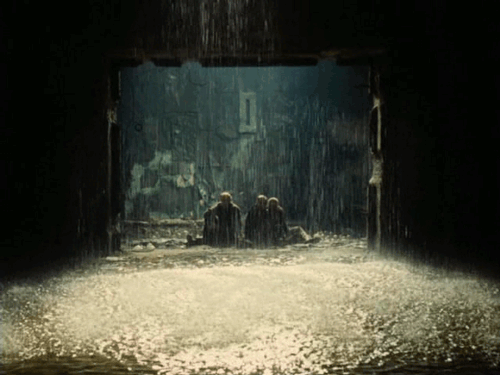Exegesis: Stalker and Roadside Picnic
Dissecting Tarkovsky's masterpiece and the novel it was based on
View on SubstackIn Exegesis posts, I project my own ideas onto popular art—mainly fiction, music, and film—with little regard for the artist’s intentions. Future subjects will include Octavia Butler’s Earthseed Series, the music of Dan Deacon, and TV’s Adventure Time.
Exegesis posts are a thank you for paid subscribers. All other Superb Owl content is free thanks to your support.
Andrei Tarkovsky—easily one of the best directors of all-time—is known for creating visually stunning films that delve into psychology, spirituality, and metaphysics. Fortunately for my purposes, his work is also wildly vague and self-contradictory. Much like the Bible, you can find evidence for nearly any assertion.
Stalker is no exception. Here’s the premise: our hero—the eponymous Stalker—leads a writer and a professor into The Zone, a heavily-guarded area full of mystery and danger. The film follows their quest for The Room—a spot in The Zone where your innermost desires are made real.

The story is loosely based on the Strugatsky brothers’ Soviet-era novel Roadside Picnic, which offers a little more detail. We’re told that The Zone is the site of an alien landing, but that the visitors rudely left without saying hello. Humans scavenge the area for world-changing technologies like ants picking through the detritus of a roadside picnic—and frequently get themselves caught in the extraterrestrial equivalent of motor oil.
Aside from the main premise, the plots of the book and the film are wildly different.
…the script of Stalker has nothing in common with the novel…except for the two words, “Stalker” and “Zone”.
—Andrei Tarkovsky
But I have a deep love for both, and they ultimately deal with the same themes: fascination with the unknown, the dangers of terra incognita, and the tyranny of unconscious desire.
Outline
The Journey
The Territory
The Shaman
The Danger
The Unconscious
The Redemption
Join the discussion on Substack!
